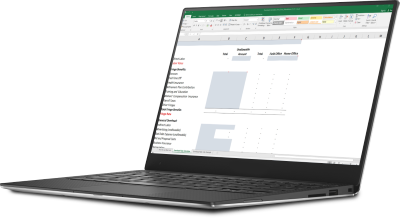Not all accountants are created equal when it comes to understanding the ins and outs of government contracting. Understanding the compliance issues that encompass government contracts sounds easy enough: cross your T’s and dot your I’s, right? Wrong.
Government contract compliance is akin to learning Arabic. Learning a new language sounds fairly simple, but it’s not. With an entirely different alphabet and grammar rules to learn, it can take years of intense study for an English speaker to master Arabic.
The same goes for accountants who work with government contractors. It takes YEARS of immersion in the world of government contracts for a CPA to master the complex rules and compliance issues that can make or break a contractor. It is an understatement to say that your CPA should have an extremely specialized skill set. Only then can your CPA help you keep your government contracting business in compliance and successful.
Whether you’re looking for a new CPA for your established government contracting business, or you’re just starting out, there are a few key traits to focus on.
1. Expertise In FAR and Indirect Costs, and Knowledge of DCAA
Let’s start with Federal Acquisition Regulations (FAR), indirect costs and the Defense Contract Audit Agency (DCAA). At a minimum, the CPA you hire should:
-
Have a thorough understanding of FAR
-
Understand what DCAA is and what the agency looks for in an audit
-
Understand how bids and proposals for government contracts are prepared
-
Know how to calculate indirect costs that impact your business proposals
-
Know how to make sure the transactions in your computer system are in compliance with FAR and your contract
-
Be up to date in understanding revenue recognition and lease accounting rules and how they impact government contracts
-
Help you understand the difference between allowable and unallowable costs related to your contracts
2. Knowledge of Software for Government Contractors
Government contractors work with a variety of accounting systems, running the gamut from QuickBooks, which is a fairly simple low-cost system (and works perfectly well for many contractors), to Procas, Deltek and Microsoft Dynamics Navision, which are more robust and pricey and typically used by larger contractors.
The CPA you hire should be able to advise you on which accounting system is appropriate for you based on your size and current and future needs. It is critical that your CPA help ensure that your accounting system complies with all FAR requirements, as well as the requirements of your individual contracts.
Self-certification is where government contractors often put themselves at risk. Contractors must “self certify” that they have an “adequate” accounting system — and correct indirect rates — that are in compliance with FAR. If a contractor certifies incorrect rates, he or she can be criminally charged if they are willfully negligent in applying those rates to a contract. This is where the specialized skills of a CPA can keep you out of trouble (and jail).
Pro tip: many contractors are surprised to hear that QuickBooks Online is not a FAR-compliant accounting system. If you have a government contract or grant, your data must be hosted within the United States. That’s where QuickBooks Online falls short of compliance. While the FAR doesn’t explicitly state that this software is not compliant — and that’s why many contractors miss it — your accountant should know this.
3. Ability to See Beyond Compliance: Profitability Is Essential
While keeping your business in compliance is 100% critical, none of that matters if you aren’t profitable in the long term.
Your CPA should help you:
-
Find ways to minimize taxes through tax credits and incentives
-
Assess internal controls to minimize the chance of employee fraud
-
Generate reports that show your management team how your business is performing month-to-month and year-to-year
-
Think strategically long term, since many contracts span a five-year period, and help you project costs when you preparing bid (so you don’t over or under bid)
-
Evaluate your banking and vendor relationships
-
Understand fixed versus variable costs
-
Use job costing to determine profitability for a specific component of a contract.
-
Understand the accounting behind indirect costs
Of course, it goes without saying that you want your CPA to return phone calls, emails and texts promptly, meet deadlines, and give solid business advice. But as you can see, specialization is the name of the game when it comes to hiring a CPA for your government contracting business.
What’s Next for You?
Before you hire a CPA, meet with several CPAs and ask for references. Ask those references what it’s like to be the CPA’s client. Also ask for specific examples of how the CPA has helped the client manage compliance challenges and grow.
To discuss your government contracting business and explore what you’re looking for in a CPA firm, contact us online or call 800.899.4623.


